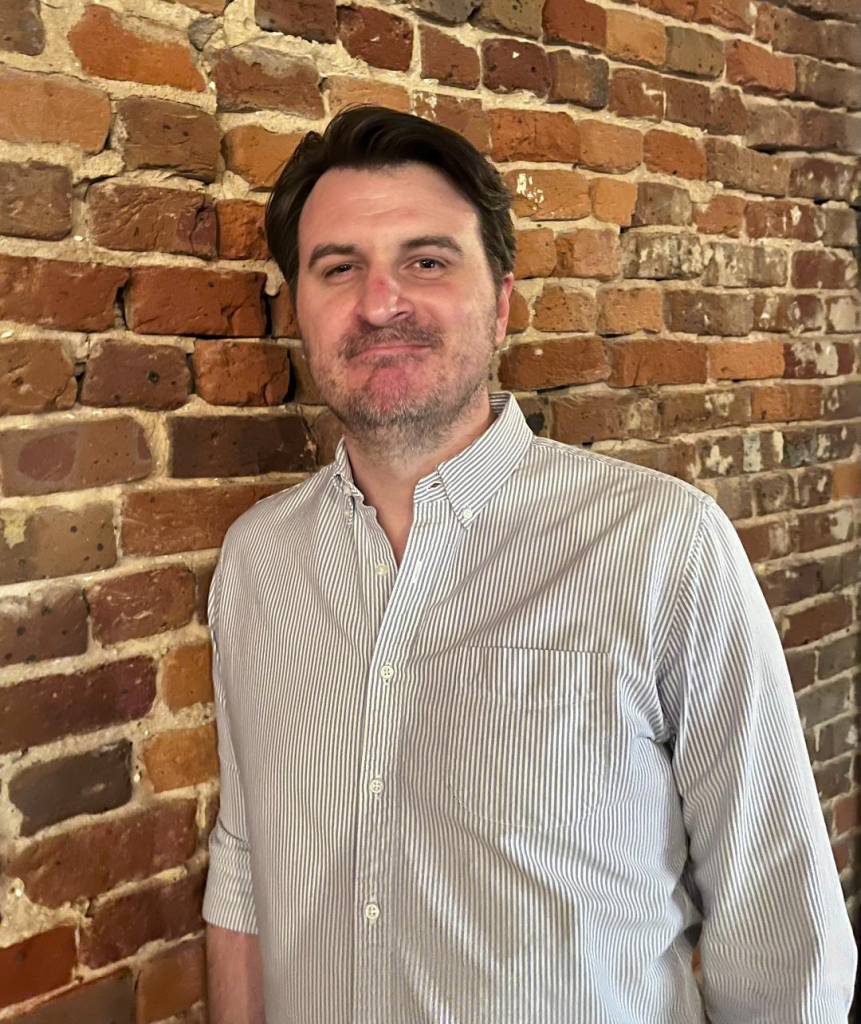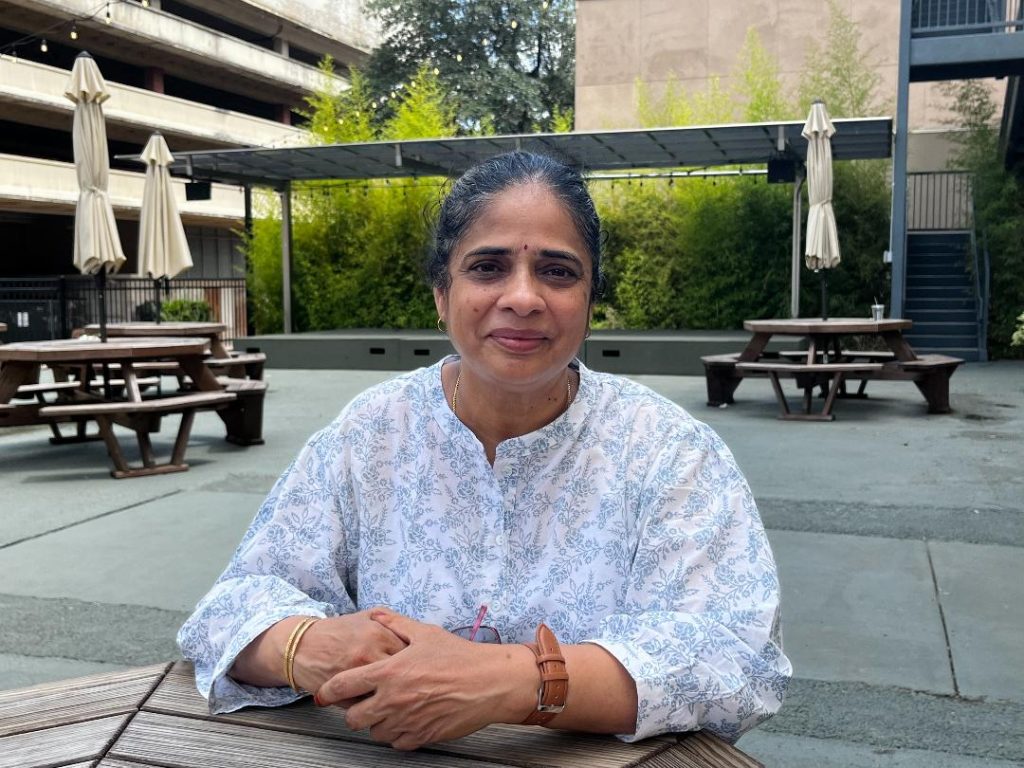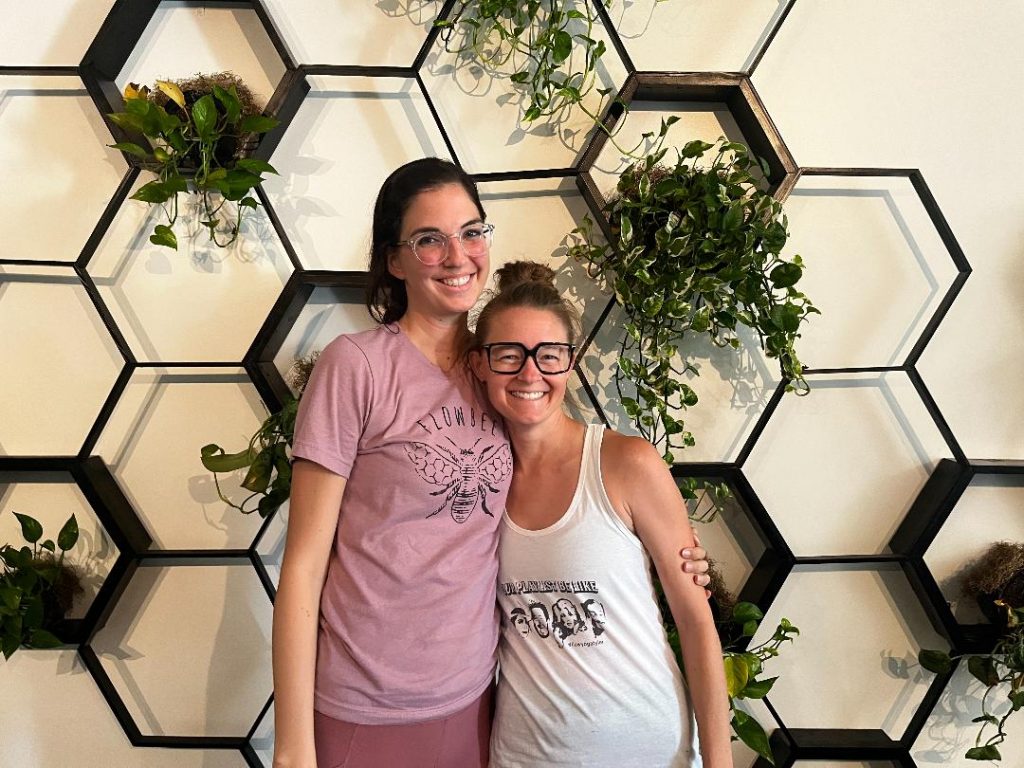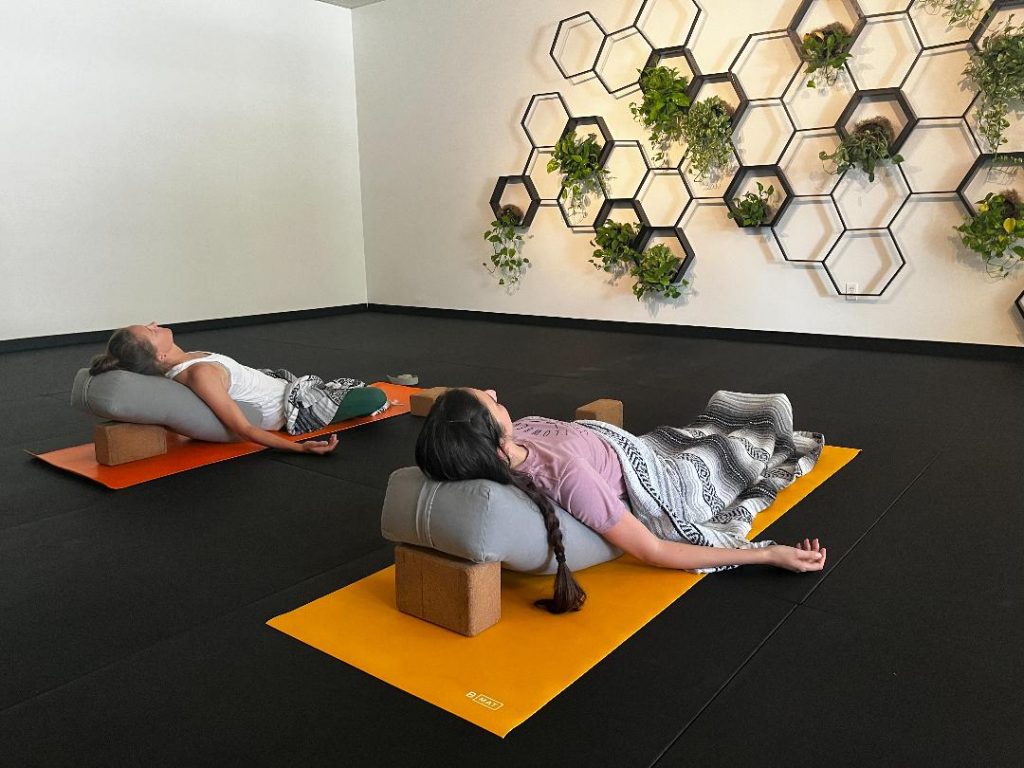In a demanding and stressful world, some Tyler residents and professionals utilize meditation to deal with the pressures of modern life. Tyler meditation instructors weigh in on how and why they teach meditation in surprisingly common ways that fit into everyday routines.
Meditation is an ancient practice with substantial benefits for attention, focus and mental and physical health. While people may imagine meditation as sitting cross legged in a dark room and focusing on breathing for extended periods of time, it’s not always the case. Different types of meditation provide diverse experiences.
“Your job is to notice everything about that meal.”

Dr. Randall Moate, the program coordinator of the clinical mental health counseling program at The University of Texas at Tyler and a counselor at Mosaic Counseling said , traditional meditation can be difficult for people who have never meditated.
He is a proponent of a less traditional type of meditation that heavily prioritizes mindfulness in day-to-day life, as well as getting into contact with and enjoying the present moment.
“I think for some people [traditional meditation] just wasn’t their thing. They couldn’t wrap their head around ‘I’m gonna go for 10 or 15 minutes, sit in this position and do this thing every day,’” he said.
Instead of advising extended meditation sessions, he might tell a client, “I’d like you to try going and eating a meal by yourself, and while you eat that meal, you’re not allowed to have your cell phone, the TV on or anything. Your job is to notice everything about that meal and also be focusing on your breath while you do it.”
Moate also said listening to music can be a meditative activity. He sometimes listens to music alone in a dark room with no distractions and focuses deeply on breathing as he does. He said this helps some clients get used to meditation.
Moate shared some of the benefits of meditation. “We live in a pretty chronically stressed, anxious society. Our whole society is built on multitasking,” he said. “Meditation is hoping to do the opposite, and it helps slow things down. It helps get us in touch with our body.”
Moate believes meditation can enhance life by allowing people to more meaningfully engage with the world.
He also said meditation can reduce symptoms of anxiety, stress and anger.
“[Meditation is] like a muscle you build, but if you build it over time, what it can contribute to is a lower baseline stress level,” he said.
Although Moate now recognizes the personal and professional value of meditation, he didn’t always meditate. He discovered meditation as a young college soccer player, and he understands how some people initially may be intimidated.
“Start small,” he said. Moate suggests new meditators follow the advice of Eckhart Tolle in his book “The Power of Now” and complete three deep breaths a couple of times a day while being fully conscious of the activity.
“Meditation is connecting with ourselves … and knowing about ourselves.”

Gayathri Kambhampati, a math professor at UT Tyler and a heartfulness meditation trainer, also believes in the power of meditation.
Kambhampati spoke about the type of meditation she practices, which is called heartfulness. “[Heartfulness meditation] is an opportunity for people to know about themselves and to discover themselves,” she said.
Like other forms of meditation, Kambhampati said heartfulness meditation helps with stress, focus and sleep, but it also has a unique, distinguishing element
“We call it a yogi transmission,” she said. “It’s an…energy transfer [that occurs] whenever you meditate with a trainer,” she said.
Kambhampati has focused her efforts on sharing heartfulness meditation with the Tyler community. She has led public meditation events throughout Tyler, at places including Natural Grocers, the Tyler Public Library and at the annual Art of Peace festival.
Kambhampati also has led meditation at the Baylor Scott and White Texas Spine and Joint Hospital, UT Tyler, the UT Tyler University Academy’s after school program with middle school students, the UT Health Center working with resident doctors and city of Tyler employees.
Kambhampati also describes her experiences working with people new to meditation. “I have seen people who have never meditated; even in the first session, they’re able to calm their mind. They’re able to quiet their mind and they feel relaxed. They feel energetic, and the yogi transmission is what helps us to achieve that so quickly, even in the first session.”
Kambhampati describes sessions she has previously done at the library, giving insight into how meditation with a trainer might work.
“I do two parts,” she said. “One is guided relaxation where I give instructions for relaxation, starting from the foot all the way to the heart.”
The second part is a guided meditation, which Kambhampati describes.
“We bring our attention to the heart. We think there is light in the heart. Everybody has a source of light, and we just meditate on that. So we don’t really visualize anything … and I don’t keep on giving instructions. It’s a totally silent meditation and at the end of 30 minutes we just come out of it.”
She also discussed another event she led meditation at, the Tyler Art of Peace festival, which attempts to spread peace in the community and is held each September.
Though the festival has been halted because of the pandemic for the past two years, Kambhampati participated in 2019, and she believes meditation is an important part of spreading peace.
“[Meditation] is for the world. People need so much peace these days — there’s wars, there’s pandemics, people losing jobs — and so we sit and meditate that day for the promotion of peace throughout the world,” she said.
Kambhampati combats some of the myths people may believe about meditation. She stressed that while people may believe meditation is religious in nature, the truth is that “any person with any religious background can do meditation and especially heartfulness meditation.” She also has noticed people are intimidated by meditation because they believe they must make their minds completely blank, which is not the case.
“Meditation doesn’t mean you have to make the mind blank. Meditation is again, connecting with ourselves … and knowing about ourselves. What that means is sometimes things will come up that you have not been addressing … and so meditation brings that out and [says] ‘Hey, this is about you; maybe you need to deal with it and maybe you need to work on it.’” She stressed that listening to thoughts that come up is essential.
“If you make [your mind] completely blank, then you are not listening to your heart. You’re not listening to your inspiration,” she said.
For those interested in trying out meditation, Heartsapp is a free phone app that connects meditators with a heartfulness meditation trainer. Kambhampati emphasized it is free and accessible to the public.
“There are about 10,000 trainers as far as I know, all over the world, and every one of them is a volunteer. We don’t charge anything; it’s free. We give our time because all these trainers have experienced the beauty of this heartfulness meditation.” Kambhampati wants to share heartfulness meditation, and she hopes more people become interested in meditation.
“It helped strip away all the things holding me back. “

Nikki Aubuchon, owner of Flow. Yoga Studio in Tyler and Nadia Almon, instructor at Flow., also want to share meditation with their students through the classes they teach. “The thing about yoga is that … the whole practice is a moving meditation,” Aubuchon said.
A number of classes at Flow., including Yin classes offered three times a week, heavily incorporate meditation. Aubuchon said the Yin class involves five to seven poses, with each pose held for three to four minutes.
“It really allows a lot of stillness and a lot of breathwork to come in,” Aubuchon said.
Almon’s class involves both power yoga and meditation, with meditation dominating the last 30 minutes of the class.
“Every Wednesday night class, I have a different meditation,’” Almon said. “I always do a different meditation to guide them through, because it’s hard to just sit still for 30 minutes and have nothing said for some people.”
Aubuchon said yoga and meditation can make lives easier off the mat.
“Yoga gives us the tools … to handle and cope with life when things come at us or come our way that are difficult,” she said.
She said the tools learned in yoga are applicable to other settings.
“There’s hard parts to our yoga classes, but … we’re allowing stillness with the hard. That’s something we can take out into the world so that when it gets hard, when it gets difficult, we can come back to our breath. We can come back and find the stillness within it, and it allows us to better move forward,” she said.
Almon and Aubuchon said they didn’t always feel the way they do now about meditation and yoga.
“It’s not something you can just try one time,” Almon said. “Not everyone has the same experience when they meditate. The first time I meditated, I had a mini panic attack.”
Despite her first experience, Almon kept meditating. “The more I did it, the more I found grounding; the more I found all the benefits you can of meditation.”
Aubuchon said her journey with meditation and yoga began with resistance.

“It was not something that I had ever been exposed to in my family or in my friend circle or in my life. I was first taken to a yoga class pretty much kicking and screaming. I didn’t wanna go. I didn’t think it was gonna be for me, and it wasn’t what I was looking for,” she said.
Despite Aubuchon’s first impression, she grew to love it and reflected on all the ways it helped her in life. “It helped strip away all of the things that were holding me back. It really helped me get aligned with my goals in life, because it stripped away all of the self doubt. It really allowed me to look at myself in a more positive way and that held space for brighter things in my life,” she said.
Almon wishes she had found yoga and meditation earlier in her life. She believes the good yoga and meditation do for the individual can create a ripple effect throughout the world.
“When it changes you, it changes your relationships. When it changes relationships, it changes communities,” she said.
“When it changes communities, it changes cities and towns in the world.”
Victoria Carpenter, originally from Fort Worth, Texas, has been a resident of Tyler for the past eight years. She received her associate’s degree in General Studies from Tyler Junior College in 2019 and graduated from The University of Texas at Tyler in the spring of 2022, where she studied English and psychology.
Love what you're seeing in our posts? Help power our local, nonprofit journalism platform — from in-depth reads, to freelance training, to COVID Stories videos, to intimate portraits of East Texans through storytelling.
Our readers have told us they want to better understand this place we all call home, from Tyler's north-south divide to our city's changing demographics. What systemic issues need attention? What are are greatest concerns and hopes? What matters most to Tylerites and East Texans?
Help us create more informed, more connected, more engaged Tyler. Help us continue providing no paywall, free access posts. Become a member today. Your $15/month contribution drives our work.







